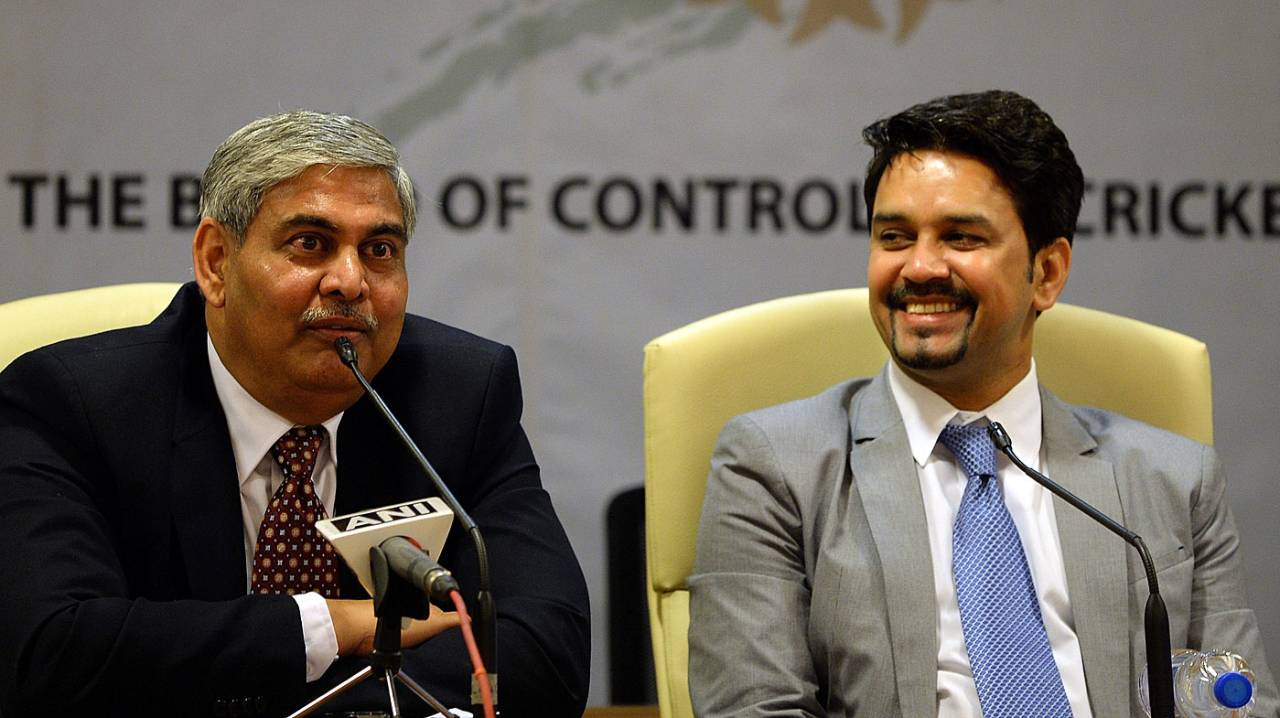'Implementing reforms an opportunity rather than a challenge'
Anurag Thakur and Ajay Shirke, the newly elected BCCI president and secretary, have said they see the implementation of the Lodha Committee report as an "opportunity" rather than a challenge

Anurag Thakur, the new BCCI president, has echoed his predecessor Shashank Manohar's views on the Lodha Committee's recommendations • AFP
Nagraj Gollapudi is a senior assistant editor at ESPNcricinfo